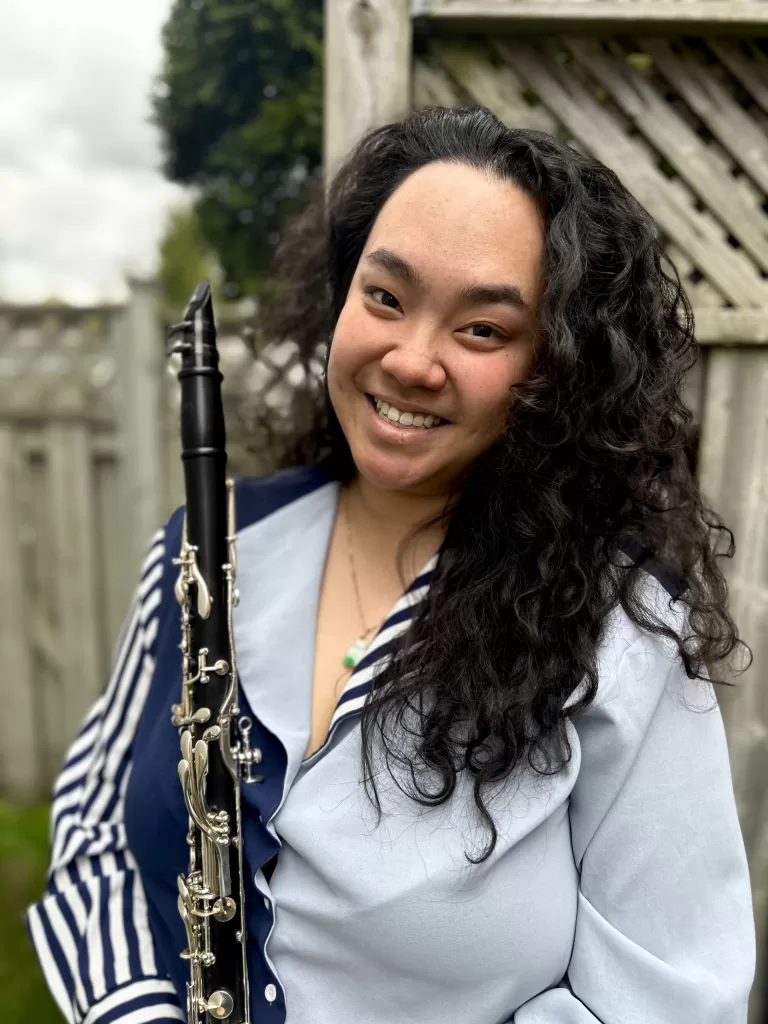
As a toddler watching The Wiggles on TV, Stephanie An realized two things.
The first was that music somehow has the power to make people happy. The second was that she wanted music to be her life.
But Stephanie didn’t come from a long line of musical prodigies. She and her older siblings learned instruments in elementary and high school like most students, but as she grew older she realized that she had a talent beyond that of her peers.
She also grew curious. “It uplifts our mood and makes us happier but it made me wonder what is happening exactly when we do that?” she remembers.
Stephanie pursued her music education through her post-secondary studies, as she thought about where music education itself takes a turn.
She noticed some people would talk about how they “loved playing music so much,” whereas for others it became a mechanical chore that they could not wait to leave behind in school. What was happening in the brain to draw that distinction?
With a personal tie-in to mental health, Stephanie also wanted to study how music improved mental and emotional health, and how we respond to music from a behavioural science perspective.
“Music was very much an escape for me,” she recalls, growing up as a music lover. She notes that she’s often found herself putting her own emotions into her music, and has benefitted from the sense of community that she’s developed through studying music in her undergrad.
As a professional, Stephanie proceeded to study the neuroscience behind music, first through an undergraduate degree and graduate certificate at McMaster University, and then recently earning her Masters in Music from the University of Toronto. In particular, Stephanie looked closer at how music can impact everything from movement and gait to emotional response.
In her research she began to see that the way we’re impacted by music wasn’t always conscious, but could be beyond our control.
“If you’re walking next to someone with high heels that are clicking at a certain pace, you’re going to walk beside them at that same tempo without even noticing,” she says.
Moreover, through working with all different populations from children to older adults to end of life care, Stephanie has noticed that our appreciation for music is universal.
“I think the biggest thing is the enjoyment that everyone shares from music, no matter what it is.” She notes that there’s usually always a song or two that seems to bind a generation, from Disney tunes for younger audiences, to Take Me Home Country Roads for older adults.
Her research has shown that it’s the subconscious that registers music first, which may explain why music can be used so successfully for patients in motor rehab, such as with Parkinson’s Disease.
Today Stephanie works professionally as a music therapist, supporting various clinics around the City. She is careful though about not mixing business and pleasure. “I still get to share my love for music for myself and others, and I’ve made it pretty good with my own boundaries of my own music and my music that I use at work,” she adds.
Along with teaching guitar, saxophone and clarient to High Notes students, Stephanie is also co-instructor of the musical wellness classes offered by High Notes Avante.
Stephanie and her colleague Laura Street were invited to start a musical wellness class late last year online as a trial run, to bring individuals touched by mental health together from across Ontario to talk about music appreciation, and what they get from music. They are starting a second group on April 13. at 56 Charles Street in Newmarket. Registration for the class is this Saturday April 6th at 11:30 am or by contacting the program coordinator at highnotesavante@gmail.com
The program uses all genres of music to engage participants on how music makes them feel, and how they connect music and mindfulness.
“It’s a safe space,” says Stephanie. No one needs to worry about their level of skill, or talent. They can simply share if they want to how the music is making them feel in that moment.
While the High Notes Music Program does not require any long-term commitment, they do encourage attendees to try the program more than once. “The first time can be a little intimidating,” she notes, but she does hope that visitors drop in at least a few times to see if it’s right for them.
Stephanie knows firsthand how much music has helped her mentally, especially when it comes to her mental health. Now she’s working hard to pay it forward.
HIGH NOTES AVANTE is celebrating its first 10 years of using music to give hope and inspire people. Proceeds from our May 6th High Notes Gala will support the High Notes Music program in which Stephanie is a teacher. Thanks to Shaun Bernstein of the Write Stuff Agency for interviewing Stephanie Q’An.
